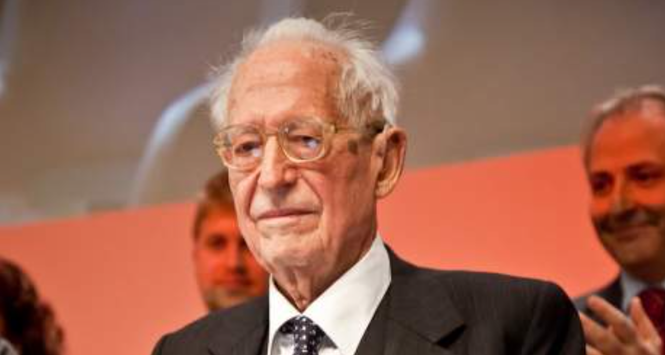
Dr Bosko Jakovljevic joined the former Yugoslav Red Cross Society in 1947 as a volunteer, to contribute to its humanitarian relief work, and especially its work with communities affected by conflict. In 2011, after 64 years of activism within the Red Cross Red Crescent Movement, he was awarded the Henry Dunant medal “for his personal commitment, his important contribution to the development of humanitarian activities and his work in promoting the Movement’s Fundamental Principles and ideals.” Whilst widely recognised for his far-reaching work on international humanitarian law – notably as one of the contributors to the Additional Protocols to the 1949 Geneva Conventions – Dr Jakovljevic was also one of the earliest proponents of international disaster response laws rules and principles (IDRL).
In 1964, he was amongst those proposing to codify international rules for disaster relief, resulting in the elaboration of the Principles and Rules for Red Cross and Red Crescent Disaster Relief, adopted by the International Conference of the Red Cross in 1969. He was also one of the key contributors to the draft Convention on Expediting the Delivery of Emergency Assistance, in which was produced by the UN Disaster Relief Office in 1984, but which was not taken up by states. In 1987, he published a seminal article in the International Review of the Red Cross on the legal aspects of the right to humanitarian assistance, and he has also written extensively about the role of civil defence in disaster relief.
More recently, in 2004, Dr. Jakovljevic contributed to discussions among National Red Cross Societies in the Balkans about key principles in disaster relief, producing a set of recommendations that were influential in the development of the global “Guidelines for the Domestic Facilitation and Regulation of International Disaster Relief and Initial Recovery Assistance” (also known as the “IDRL Guidelines”) several years later.
Why does he think disaster law is so important? “Disaster law concerns one of the basic activities of the International Red Cross and Red Crescent Movement; it regulates the way in which humanitarian assistance is, and must be, given,” considers Dr Jakovljevic. “It is one of the clearest examples of solidarity between people; it is a factor of peace.” When a nation is hit by a disaster, the desire to help – and the feeling of humanity – prevail over most political disagreements, Dr Jakovljevic believes.
Dr Jakovljevic smiles as he relates that in his decades of work for the International Red Cross and Red Crescent Movement, he was in turn professional and volunteer – in true dedication to the Movement’s principles – as he sought out opportunities to contribute to the work of the Movement. He now focuses on the dissemination of international humanitarian law, disaster law and the Movement’s mission and principles. As a result, he often lectures, to civil defence and security personnel, students, young lawyers, military legal advisers, members of the Movement, medical personnel, and the list goes on.
“Every concerned actor, whether part of the UN system, or of the International Red Cross and Red Crescent Movement, whether a governmental or private entity, must cooperate and agree rules on disaster relief,” notes Dr. Jakovljevic, “and the IDRL Guidelines are today a standard of behaviour to be respected and implemented by all actors."